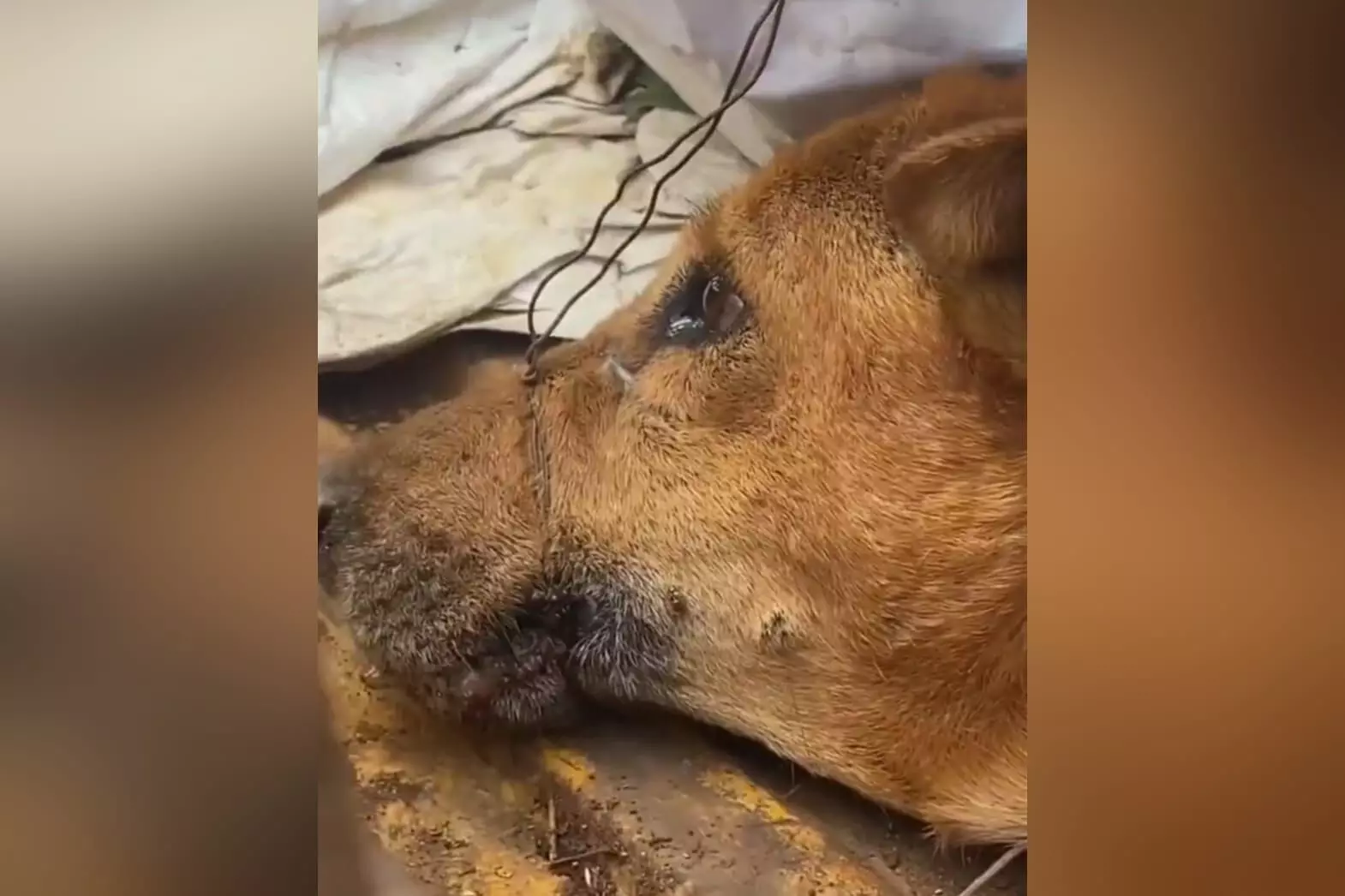`Dogs gagged with metal wires': Woxsen University’s stray relocation drive draws ire
A disturbing video has surfaced on social media showing stray dogs
By Nikisha Uddagiri
Hyderabad: A disturbing video has surfaced on social media showing stray dogs at Woxsen University in Kamkole, Hyderabad, having their mouths tied with metal wire.
According to students, the university management is trying to relocate the dogs, which is against the Prevention of Cruelty to Animals Act of 1960 and the Animal Birth Control (Dogs) Rules, 2001. Despite several requests from students to stop this abuse, the authorities are allegedly turning a blind eye to the issue.
Kumari, an activist from Bluecross, said that under the Prevention of Cruelty to Animals Act of 1960, it is advised not to relocate dogs that have been sterilized and vaccinated. This is because when a dog is relocated, it can attract new dogs to the area which may be unfamiliar with people and may be more likely to bite.
One student, who wished to remain anonymous, said: "Woxen university has a very safe and very loving ecosystem. We had 7 puppies, two and a half months old. I personally think it was extremely unnecessary and very cruel on how they did it, and it is very traumatic for the students who were watching from the windows."
"Nobody knows the reason for relocating the dogs, as they have never troubled us. And for most of the students, dogs were the support system. I don't see a reason for them to relocate the puppies like this because I've personally taken initiative to make their lives on campus better."
The student also highlighted that the university authorities should have consulted with them before taking such action. "The least they could have done is put out a word saying, 'Are you guys okay with us relocating the dogs?'" the student said. "Because these dogs have been a support system for a lot of students here on campus."
Psychologists said it is important to recognize that animals play an important role in the lives of many people and should be treated with care and compassion.
Dr. Purnima Nagaraja, a mental health professional at Dhrithi Wellness Clinic, explained that animals, particularly dogs, have a positive effect on humans by releasing oxytocin, the love hormone.
“Animals provide unconditional love, acceptance, gratitude, faithfulness, devotion, and love. They can be a support system and lifeline for humans, especially those with illnesses or trauma. However, animal abuse can lead to psychological effects such as anxiety, depression, and post-traumatic stress disorder (PTSD),” she said.
Dr. Purnima noted that people who have been around animals have a greater sense of empathy and acceptance, which are lessons that can be learned from animals.
In response, Woxsen released a statement on Twitter acknowledging the existence of pictures related to animal cruelty circulating on social media and in other public domains.
Official Statement issued by Woxsen University for your kind reference. @pfaindia @streetdogsof @PetaIndia @peta @IndiaHSI @gauri_maulekhi @TelanganaDGP @TelanganaCOPs @hydcitypolice@KTRBRS @KTRoffice @Pfa_AntiCruelty @asharmeet02 @abhishekdey04 #woxsen #woxsenuniversity pic.twitter.com/MRyUHe04rw
— Woxsen University (@Woxsen) March 28, 2023
According to the statement, “There have been 2 incidents reported at campus regarding dog attacks in the last 1 month. The university clearly had the responsibility of maintaining the balance between human rights and animal rights. To strike this balance and deal with the menace of stray dogs on campus, we approached a local agency for just catching the dogs & neutering them, which is in full compliance with the guidelines issued by AWBI (Animal Welfare Board of India). The university is also in the process of making a dog shelter for these stray dogs.”
They further added, “These pictures are equally shocking and appalling to the university as the acts were carried out by the agency without the management's notice. We strongly condemn any sort of cruelty towards animals and as a responsible institution, we have already taken up this matter sternly with the concerned & filed a written complaint against the same. As a learning, Woxsen University going forward will only engage with organizations working closely with Animal Welfare NGOs.”